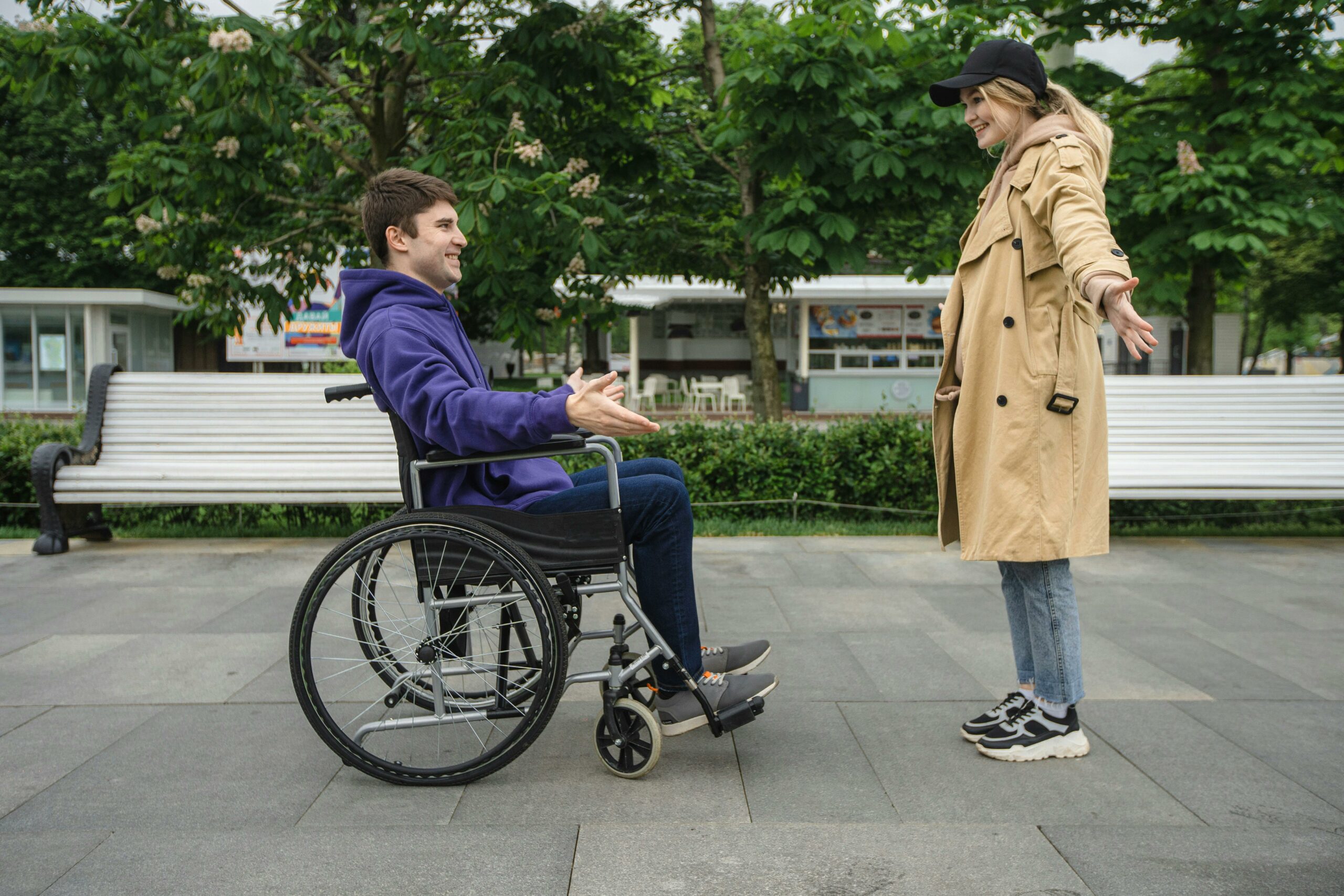What Does a Career in Disability Support Really Look Like?
Choosing a career in disability support is more than just a job; it’s a chance to make a genuine difference in someone’s life every single day. Many people considering this path often ask: What does the work really involve? The truth is, no two days are ever the same. From helping someone get ready for their day to empowering them to achieve personal goals, disability support workers play a vital role in creating a life full of dignity, independence, and connection for people with disabilities.
If you’ve been exploring training options such as a Certificate IV in Disability, this post will give you a clear picture of what the career looks like in practice, the qualities you’ll need to thrive, and the opportunities that can open up for you along the way.
What a Disability Support Worker Really Does
When people think about disability support, they often imagine physical assistance or daily care. While that’s part of the role, the reality goes much deeper. Disability support is about empowering individuals to live life to the fullest, while respecting their independence and personal choices.
Here are some of the main areas of support you’d be involved in:
1. Personal and Daily Living Support
A big part of the role is helping with day-to-day activities. This could include assisting with personal hygiene, helping someone get dressed, preparing meals, or tidying up around the house. These small but essential tasks ensure that clients can maintain comfort and dignity in their daily lives.
2. Community and Social Support
Many people with disabilities face challenges with isolation, so disability support workers help clients stay connected. This might mean accompanying them to the local footy game, joining a community class, or simply heading out for a coffee. Social connection is vital for wellbeing, and you’ll often become the link that keeps clients engaged with their community.
3. Health and Well-Being Support
Another important responsibility is supporting clients with health-related needs. You may help them attend medical appointments, keep track of medications, or monitor general health. While you’re not expected to be a medical professional, you do play a key role in making sure they stay on top of their health routines.
4. Independence and Skill Development
One of the most rewarding parts of the job is empowering people to build life skills. This might include showing someone how to budget, helping them cook a simple meal, or encouraging them to learn new hobbies. Seeing someone grow in confidence and independence thanks to your support is incredibly fulfilling.
5. Emotional Support
Lastly, disability support isn’t just about practical tasks—it’s also about being a companion. You’ll often be a trusted person who listens, encourages, and offers emotional support. Building respectful, genuine relationships with clients is at the heart of this career.
What to Expect in a Typical Day
So, what does a day in disability support really look like? The truth is, it depends. Each client has unique needs and goals, which means no two days are ever the same. But here’s what you can usually expect:
- Variety: Some days you’ll be assisting with daily routines, while others might involve outings, appointments, or group activities.
- Flexibility: Things don’t always go to plan, so you’ll need to be adaptable and able to think on your feet.
- Connection: A huge part of the job is about building strong bonds with clients and being a consistent, positive presence in their lives.
- Community involvement: Whether it’s helping clients attend events or simply connecting with their family and friends, you’ll play a big role in fostering a sense of belonging.
It’s a career that balances structure with unpredictability, which keeps things interesting and meaningful.
Career Pathways and Growth Opportunities
Disability support is an industry with plenty of room for growth. Once you complete a Cert 3 Individual Support Disability or a Certificate IV in Disability, you’ll open the door to a wide range of opportunities.
Here are a few career pathways to consider:
- Specialized roles: You might choose to work with clients who have specific needs, such as intellectual disabilities, physical disabilities, or complex health conditions.
- Allied health support: Many disability support workers go on to work alongside physiotherapists, occupational therapists, or psychologists.
- Further training: With additional qualifications, you could move into supervisory or management roles, or even branch into community services and aged care.
The sector is growing rapidly, which means there’s strong demand for skilled workers and countless opportunities to advance your career.
Key Qualities You’ll Need to Succeed
Working in disability support isn’t for everyone and requires a special set of personal qualities. If you’re wondering whether this path is right for you, here are the traits that will help you thrive:
- Empathy and patience: You’ll need to genuinely care about others and be willing to adapt to their pace and needs.
- Respect and dignity: Every client deserves to be treated with kindness and respect, no matter their situation.
- Problem-solving skills: Unexpected challenges often come up, so being able to think quickly and calmly is essential.
- Flexibility: No two days are alike, and being open to change will help you succeed.
- Strong communication: You’ll work with clients, families, and other professionals, so clear and compassionate communication is key.
Why Choose a Career in Disability Support?
There are many reasons people are drawn to this field, but the most common one is the desire to make a difference. Few careers allow you to see the direct impact of your work as clearly as disability support. When you help a client achieve something they once thought impossible, you’ll know you’ve made a real contribution to their life.
DP Training – The Best Place to Start Your Journey
If this career path excites you, the next step is finding the right training provider. DP Training is one of the best places to pursue qualifications like the Certificate 4 in Disability, Certificate 3 in Aged Care and Disability.
Why DP Training?
- They offer flexible learning options, making it easier to balance study with other commitments.
- Their trainers bring real industry experience, ensuring you’re learning practical, hands-on skills.
- Graduates are well-prepared for the workforce, with many finding employment opportunities soon after completing their course.
Choosing DP Training means you’re not just earning a certificate, you’re gaining confidence, practical experience, and the support you need to succeed in a meaningful career.
Final Thoughts
A career in disability support is not only rewarding but also incredibly diverse. It’s about more than just providing care; it’s about empowering people, building connections, and helping individuals live their best possible lives. Whether you’re supporting someone with their daily routine, encouraging them to try something new, or simply being there to listen, every action you take contributes to their independence and well-being.
If you’re compassionate, adaptable, and ready for meaningful work, this could be the career you’ve been looking for.



